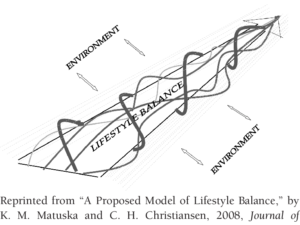Jeremiah 17:10. God judges deeds by fruit.
Read it HERE. (NKJV, NIV) Hear it read here: NKJV or NIV.
Introduction. Jeremiah chapter 17 is God reminding His people about their own covenant promises and how they have broken both the Law of Moses (vs. 1-4) and the accepted guidelines of blessings and curses (vs. 5-8). He urges His people to avoid trusting their own internal compasses since they do not even understand right and wrong in their own hearts, let alone knowing how to cure or fix it if it is in fact proved to be wrong (vs. 9). Through his prophet, God then urges His special people to trust His Divine judgment. And He sets forth what are clearly the culmination of His leadership principles for returning to wise leadership over themselves and their nation in verse 10.
Vs. 10 "I the Lord search the heart, I try the reins, even to give every man according to his ways, and according to the fruit of his doings." - NKJV
Vs. 10 “I the Lord search the heart and examine the mind,to reward each person according to their conduct, according to what their deeds deserve.” - NIV
Part 4 of 4: God Judges Deeds by Their Fruit
Fourth, in this passage God says that every deed gets what it deserves. Consistent with God's allegory of Israel (and other nations) being a tree, the NKJV translates "deeds" as "fruit." This alone implies that every deed God sees is is a seed that produces something and bears after its own kind. Of course, some deeds are thorns or wild or crooked. But some deeds are fruit that produces more seeds and produce an abundance of ongoing fruit. It is about impact and relevance. As a leader, are you completing a bunch of required tasks, or are you bearing fruit? If we are to bear fruit in every season, are you prioritizing correctly for future harvests in other seasons, too? This means you should be proverbially preparing, planting, tending, weeding, pruning, and harvesting all at once, depending upon the season!
One of the main criterion for judging leaders, according to Jesus, is their fruit. Thus, as godly leaders, we must be very careful to ensure that what we are producing out of our leadership activities are fruitful and complete. Depending upon WHAT we plant (seeds), WHERE we plant them (in the wild, in a field, in a container), and HOW we plant them (scattered, sow, tended), our fruit can arrive in very different ways and in very different levels of production. We might end up like the pharisees who hoped they were sowing righteousness as a fruit, but instead were would reap thorns (no fruit), death (whitewashed tombs), and final shame because people of heathen nations still had some fruit (Corazin, Sodom) whereas they, God's representative leaders, did not. Jesus criticized them for not knowing their time and season of their leadership. Planting one crop and letting it multiply in that field over and over again will only lead to depleted soil, diminishing returns, and lack of fruited sustainability.
In the parable of the talents, Jesus goes even further to say that those who bear fruit get more fruit, while the ones who plant their talent without tending to its production/fruit is cut off. It sounds harsh, but it is about taking the leadership seeds you have (not what you don't have) and planting it in the right soil where it might grow to fruition. This means tending to it as needed to protect it from droughts, floods, birds, rocks, and neglect. It also means that effective leaders must have more than just one crop in various levels of development, not just on their teams (eg, think of pastors equipping parishioners), but also in their own works. Prioritizing well means balancing all of the tasks at hand so that no crop is sacrificed for immediacy.

When was the last time you analyzed your leadership impact based on producing fruit from your deeds in every season? Often, we can achieve our goals as leaders and think we are doing very well (like the Pharisees did), but fail to grow real fruit as our goals are reached. Goals are not fruit. Goals are the sign-posts we set to navigate our course toward a destination. Fruit is the multiplication of our efforts, the impact of our deeds on and through others.
Good leaders plant their skills and talents by putting them to good use wherever they are. Good leaders exert themselves through action to achieve good things. Good leaders let their deeds speak for themselves. Being good is not bad. But....
Great leaders know what time and season to plant so that the seed itself, the soil, the weather, and other situations and people multiply their efforts. Great leaders are able to step away so that they can effectively prioritize what tasks will be most impactful for that day. Great leaders do the right things at the right time and are able to rest and renew themselves on a regular basis. God is a great leader and provides the example for us, both on earth and in heaven.
ASK YOURSELF:
Will my tasks/efforts/actions/deeds produce good and be followed by a season of rest? This is the basis of understanding your IMPACT and PRIORITIZATION. Remember that God created work and rest, even for Himself.
Work your tasks, but if your efforts to complete tasks never end, you are out of sync with God's plan for your fruitfulness. Even God had creation days in which all of his tasks for the day were done and things were operating according to His plan so that He could stop working and call them "good". He continued to work His plan the next day with a new set of tasks, which were fully completed, and again stepped back to call it "good." God does not sleep, of course, so this principle is not about being tired. It is an ordained Divine leadership practice that marks completion: "It is done." With the end arises a new beginning, which is again a God-ordained cycle. Don't blur your days and nights, weeks and weekends, or months and years with endless tasks that make you feel good leadership vibes, but that do not produce anything that will last or that can be appreciated!
Leaders must not drain their energy to the point where they cannot effectively lead, and that is a definite leadership tendency. Of course, big visions mean big task lists. But many times we are working harder than we need to work for the same or better results. Moses's father-in-law saw this happening to Moses in the specific area of judging the people's conflicts, and suggested that this be corrected by establishing better priorities for himself and others. (Exodus 18)
If your leadership deeds never end and don't seem to lead to a natural break in which you can step back and appreciate what was done, watch your efforts work on their own or through others, and can call it "good", your efforts are not being fruitful. You might need a retreat to reset your priorites, reexamine your time schedules, and renew your energy. Don't wait until you burn out or become bitter! Even God took a day of rest, and He's God! If accomplishing many tasks or actions (deeds), does not lead to a time of rest at specific intervals - just to BE...then you are out of sync with God's plan for leadership. It will affect your ability to prioritize tasks effectively and will cloud your ability to recognize your own impact.
What are my top three main leadership priorities and have my daily tasks been consistent with them? Steven Covey is a noted expert on how to properly set priorities. An interview conducted with him explains this aspect best and guides you to analyze your priorites better - in other words, your TASK MANAGEMENT. This exerpt is reported in full on his own site, found here: http://www.stephencovey.com/blog/?tag=setting-goals.
"Q: What does it mean to have work/life balance?
A: This is a very personal thing and it is different for everyone. Generally speaking, having a good work/life balance means that your actions and priorities are aligned in a way that is taking care of what is really important to you.
Today the average college student or corporate worker considers themselves a “multitasker”. It’s not unusual to meet people in their 20s who are working, going to school, starting their own company, married, raising kids and enjoying hobbies. They end up with a huge list of things that fracture their attention. This isn’t wrong in any way–for the most part it’s admirable–but there is an old saying: to a hammer, everything looks like a nail. To a chronic multitasker, everything is a task. Soon, the things in life that are really important to them are in the same list as everything else, and the only tasks that get done are the ones that have become urgent, but often aren’t very important.
Because of this they are driven by an addiction to the urgent and continually respond to the the four P’s—those things that are Pressing, Proximate, Pleasant and Popular—leaving very little time to do those things that are truly important.
Q: What can happen to you when you allow yourself to become out of balance?
A: One of the main implications of being out of balance, however you define it, is that you neglect other areas of your life; family, health, etc. are often some of the first. When you become so addicted to only dealing with your urgent tasks you don’t think there is time for the non-urgent. You think that there will be time to deal with them later. But often, when you ask people what they feel is most important in their life, things they really want to accomplish, they are things that take time and long-term investment. By the time these things become urgent, it’s often too late to affect them.
For example, take a relationship. If you only invest in your relationships when they become urgent (you are on the brink of divorce or your child has become self destructive) you can’t just “take care of it.” It becomes a dominate issue that could take decades to “fix.” These issues can often be avoided if you invest in your relationships when they are important, but not urgent. This might mean turning off the computer and cellphone when you get home and really investing in your loved ones.
Another example is your health. If you don’t eat well or exercise because you don’t think you have the time or because it isn’t urgent, you could find yourself in a life risking situation later. When a health issue becomes urgent, it stops everything else. But if you take the time daily to eat well and exercise in some form, you take care of your body so that you lessen your chances of ill health.
Q: So, I have to say “no” to some things. What should I say no to?
A: First, you have to decide what is important. What do you really want to be and do with your life. What is your mission? What do you want people to say about you 30 or 40 years from now? Then, look at what is being asked of you and see if those things are a part of your life’s important goals. If not, smile and say “no.” If you’ve really decided what is important, you can become an agent in helping the people you work with, your family, friends and boss, know and understand your top priorities. This takes courage. It means you have to stand up for what you feel is important and help others understand why.
Q: But I’m worried that if I make time for personal things, like my health or relationships, that I’ll lose chances to be promoted in the workplace.
A: I suggest the opposite will happen. Reaching a level of life balance where you are learning to say “no” to the urgent and unimportant gives you time for things such as professional development activities. You are enabled to go the second mile in your efforts to help solve problems; you carve out time to mentor and be mentored, to look for other opportunities; you are able to anticipate needs long before they come up because you are not so urgency-addicted. Therefore, you are really promoting your promotability and increasing your options by choosing to spend time working on things that are most important. Of course, there will be some employers that won’t see things this way. They will look at you as a workhorse that should be given as much work as possible until your back breaks. My question to you would be, if this is the case, and you can’t focus on what is truly important to you, then why are you working there? You are worth more than that."
[dt_sc_hr /]Practice these two questions each day for a week and see if you discover anything new. As a leader, you might find that what you thought you were working hard for is actually being undermined by your own habits or thought-processes. If not, it is still a good exercise to check in with periodically anyway to stay on-track. If you have found a pattern of inconsistency, you now know an area upon which you can directly impact your own success and the success of those you lead. You can adjust what needs to be adjusted for more impactful decision-making by letting loose from some personal assumptions and established habits to redirect your efforts. Well done!
Next article 10/12/17: Putting It All Together, Jeremiah 17:10 (members-only)
(This and the next article, Free Leadership Tool to Use, are for members-only. You can join with a tax-deductible Bronze donation membership of $50/yr to view all Christian content in our site.)




